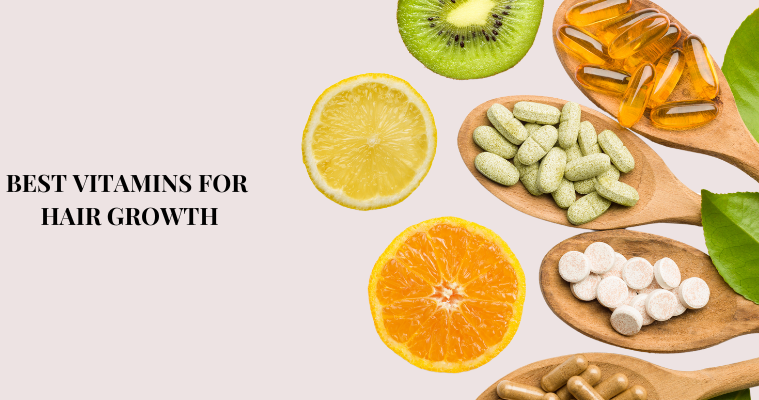Which Vitamin Deficiency Causes Hair Loss
Hair loss can be a distressing condition and is a common concern for many individuals. While genetics, hormonal changes, and underlying health conditions can contribute to hair loss, vitamin deficiency is another significant factor to consider. Among the various essential vitamins, six vitamins in particular have been linked to potential hair loss due to deficiency.
Best Vitamins For Hair Loss
Vitamins play a pivotal role in supporting hair growth and preventing hair loss. Let’s explore the essential vitamins that contribute to healthy hair and how you can incorporate them into your diet for optimal hair health.
How Much Vitamin D Per Day For Hair Growth
Vitamin D is essential for maintaining overall health, including the health of the scalp and hair follicles. The recommended intake for most adults to maintain adequate vitamin D levels is 600-800 IU (International Units) per day. However, some experts suggest that higher doses may be necessary for certain individuals, especially those who are deficient in vitamin D or have specific health conditions. Some research suggests that higher doses of vitamin D, up to 4000 IU per day, may be safe and beneficial for adults, particularly those who have low blood levels of vitamin D or who have conditions that interfere with vitamin D absorption. Pleae always consult a healthcare provider for the appropriate dosage for you.
Here’s how vitamin D contributes to hair growth:
- Hair Follicle Cycling: Vitamin D regulates the hair follicle cycling process, which includes the growth, rest, and shedding phases of hair. Adequate vitamin D levels promote proper functioning of the hair follicles, ensuring optimal hair growth.
- Scalp Health: Vitamin D has anti-inflammatory properties that help maintain a healthy scalp. A healthy scalp provides an ideal environment for hair growth, while conditions like dandruff or scalp inflammation can hinder the hair growth cycle.
- Hair Density and Thickness: Vitamin D deficiency may compromise hair density and thickness. By supporting the absorption of essential nutrients necessary for hair growth, vitamin D contributes to the overall density and thickness of the hair shaft.
Vitamin D Food Sources
- Sunlight exposure (aim for about 10-15 minutes of sun exposure several times a week)
- Fatty fish (such as salmon and tuna)
- Egg yolks
- Fortified dairy products
- Fortified cereals
Vitamin A Deficiency Hair Loss
Nourishing the Roots Vitamin A is not only essential for maintaining healthy vision and immune function but also plays a vital role in promoting healthy hair growth. This vitamin helps produce sebum, an oily substance secreted by the scalp, which moisturizes the hair and prevents it from becoming dry and brittle. However, excessive intake of vitamin A can lead to hair loss, so it’s important to strike a balance.
Food Sources of Vitamin A
- Sweet potatoes
- Carrots
- Spinach
- Kale
- Liver
- Eggs
Vitamin E Hair Growth Benefits
Vitamin E is a powerful antioxidant that helps improve blood circulation, including to the scalp. By enhancing blood flow, vitamin E ensures that hair follicles receive an adequate supply of oxygen and nutrients, promoting healthy hair growth. Additionally, vitamin E helps maintain a healthy scalp by reducing oxidative stress and inflammation, which can contribute to hair loss.
Food Sources of Vitamin E:
- Almonds
- Sunflower seeds
- Spinach
- Avocado
- Olive oil
- Wheat germ
Vitamin B7 (Biotin) For Hair Growth
Biotin, also known as vitamin B7, is often touted for its role in promoting hair growth and improving hair health. This vitamin is crucial for the synthesis of keratin, a protein that forms the structural foundation of hair. Adequate biotin levels help strengthen hair strands, reducing the risk of breakage and promoting overall hair resilience.
Natural Food Sources of Biotin:
- Eggs
- Nuts (such as almonds, peanuts, and walnuts)
- Seeds (such as sunflower seeds)
- Whole grains
- Avocado
- Salmon
Vitamin B12 Deficiency Hair Loss
Vitamin B12 is essential for the production of red blood cells, which carry oxygen and nutrients to the scalp and hair follicles. A deficiency in vitamin B12 can lead to anemia, a condition characterized by reduced oxygen delivery to tissues, including the scalp. As a result, inadequate oxygen supply may compromise hair follicle function and contribute to hair loss.
Food Sources of Vitamin B12
- Meat (such as beef, poultry, and fish)
- Dairy products
- Eggs
- Fortified cereals and plant-based milk alternatives (for vegetarians and vegans)
Vitamin C Deficiency Hair Loss
Vitamin C is not only known for its immune-boosting properties but also plays a crucial role in maintaining healthy hair. This vitamin is essential for collagen production, a protein that provides structure to the hair and supports its growth. Additionally, vitamin C aids in the absorption of iron, another nutrient important for hair health.
Best food Sources of Vitamin C
- Citrus fruits (such as oranges, lemons, and grapefruits)
- Strawberries
- Kiwi
- Bell peppers (especially red bell peppers)
- Broccoli
- Brussels sprouts
Incorporating a variety of vitamins into your diet is essential for maintaining healthy hair and preventing hair loss. Whether it’s vitamin A for nourishing the roots, vitamin E for boosting circulation, or biotin for strengthening hair structure, each vitamin plays a unique role in supporting hair health. By consuming a balanced diet rich in vitamin-packed foods and maintaining overall wellness, you can ensure your hair remains strong, vibrant, and healthy.
Published by HOLR Magazine.


